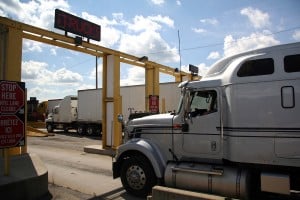Federal Trucking Regulations – How They Apply to Small Commercial Vehicles
March 7, 2017
In accordance with the Federal Motor Carrier Safety Regulations definitions, a business vehicle that weighs more than 10,001 pounds, either by itself or combined with a trailer, is a commercial motor vehicle. For comparison, a typical pickup weighs between 6,000 to 8,000 pounds. A business pickup hauling a trailer with a combined weight of the two is considered a commercial vehicle. Commercial motor vehicles are subject to federal safety regulations.
It’s important to note that a commercial motor vehicle under 26,001 pounds does not require a driver with a CDL. A driver does not need a CDL to haul a trailer, but the same regulations apply to both CDL and non-CDL commercial motor vehicle drivers – with the exception of the regulations specifically addressing CDL licenses and drug and alcohol testing.
Businesses that operate commercial motor vehicles are required to register and obtain state and federal approval to operate. Landscape companies, plumbing and construction companies, HVAC companies, and other companies that operate vehicles over 10,001 pounds must register and follow federal regulations in operating those vehicles.
Under this application of the federal regulations, the hours of service rules apply to these vehicles as well, while the exception of a logbook is not required. Employers are required to ensure their drivers are qualified to operate the vehicle and maintain a Driver Qualification File. A driver is qualified if they are at least 21 years old, have the ability to read and speak English (to understand street signs and speak with people), and pass physical and medical qualifications. Additionally, the employer is required to keep accurate time records for the driver. Most small businesses fail to keep accurate time records for their drivers, which raises a presumption of a operating commercial vehicles in violation of the law.
